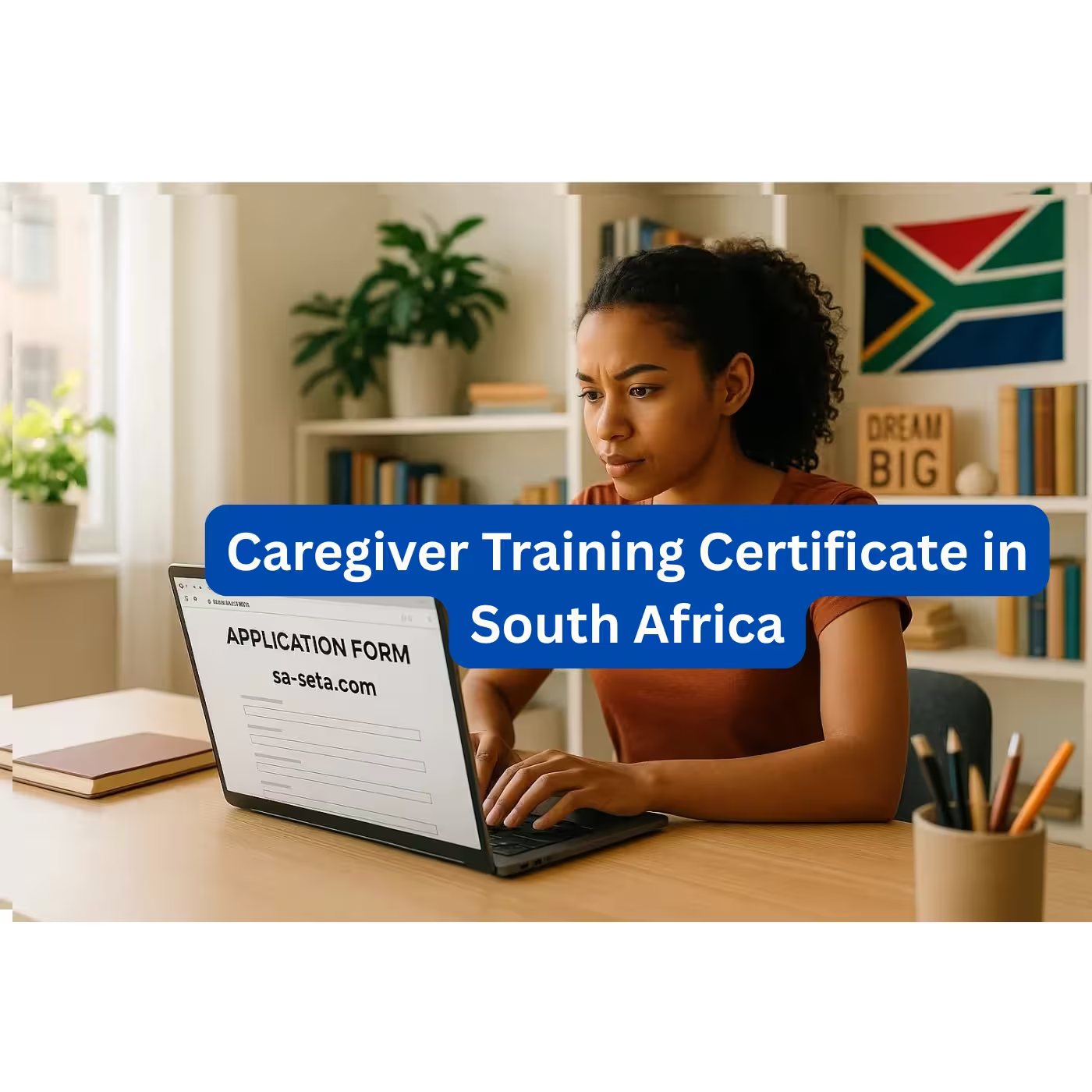Are you passionate about helping others and considering a career in caregiving? A Caregiver Training Certificate in South Africa is your gateway to a fulfilling profession where you provide essential support to the elderly, people with disabilities, and chronically ill patients. This comprehensive guide explores caregiver training opportunities in South Africa, the importance of certification, accredited providers, job prospects, and more.
What Is a Caregiver?
A caregiver is a trained professional who assists individuals who need help with daily living activities. This may include:
- Assisting with bathing, dressing, and grooming
- Helping patients with mobility
- Administering medication (under supervision)
- Monitoring health conditions
- Providing companionship and emotional support
- Ensuring proper nutrition and hygiene
Caregivers work in various settings, including private homes, hospitals, clinics, retirement homes, and rehabilitation centres.
Why Get a Caregiver Training Certificate?
A Caregiver Training Certificate proves you have received formal training to care for people with physical, mental, or emotional challenges. Here’s why certification matters:
✅ Builds Trust
Families and employers prefer certified caregivers because they’ve demonstrated competence through a recognised programme.
✅ Improves Skills
Training equips you with practical knowledge and critical skills in first aid, patient care, and communication.
✅ Increases Job Opportunities
With South Africa’s ageing population and growing demand for home-based care, certified caregivers are in high demand locally and internationally.
✅ Legal Compliance
In some provinces and institutions, certification is a requirement before employment, especially in health and elderly care settings.
Who Should Take a Caregiver Training Course?
Anyone who is interested in a healthcare or social support career can benefit from caregiver training, including:
- School leavers (matriculants)
- Unemployed youth seeking skills development
- Individuals caring for a sick or elderly relative
- Volunteers in community healthcare
- Healthcare workers seeking formal certification
Most training providers require learners to be 18 years or older, physically fit, and have basic literacy and numeracy skills.
RELATED:
- Free Online Courses Without Matric in South Africa (2025 Guide)
- How to Apply for a TEFL Certificate Course: Step-by-Step Guide
Topics Covered in Caregiver Training
Caregiver certificate courses in South Africa are usually short-term programmes that offer both theory and practical experience. Modules typically include:
- Introduction to caregiving
- Basic nursing care
- Hygiene and sanitation
- Nutrition and feeding
- Dealing with the elderly and disabled
- Palliative care and terminal illness
- First aid and emergency response
- Ethics, communication, and professionalism
Some providers offer specialised training such as dementia care, HIV/AIDS support, or mental health care.
Duration and Cost of Caregiver Courses in South Africa
📅 Course Duration
Most caregiver certificate programmes last between 3 and 12 months, depending on the institution and whether the course is full-time or part-time.
💰 Cost
Fees vary widely. Here’s a general breakdown:
- Short courses (3–6 months): R4,000 – R8,000
- Comprehensive courses (6–12 months): R8,000 – R15,000
- Some SETA-accredited courses may be free or subsidised through learnerships or government programmes.
Always ensure that the provider is accredited and offers a valid certificate upon completion.
Accredited Caregiver Training Providers in South Africa
Choosing the right training provider is crucial. Look for institutions accredited by:
- Health and Welfare Sector Education and Training Authority (HWSETA)
- South African Nursing Council (SANC) (for nurse assistants)
- Quality Council for Trades and Occupations (QCTO)
- South African Qualifications Authority (SAQA)
Popular Caregiver Training Institutions:
- St John South Africa – Offers a Health and Frail Care course including first aid and home-based care.
- Robin Trust (Cape Town) – Accredited care worker programme with practical placements.
- Netcare Education – Offers a caregiver course through their training division in select provinces.
- Optimum Learning Technologies – HWSETA-accredited programmes for caregivers and health workers.
- Red Cross Society of South Africa – Offers various community-based health training options.
SETA Learnerships for Caregivers
For unemployed youth or those who cannot afford training, HWSETA Learnerships are an excellent alternative. These learnerships offer:
- Fully-funded caregiver training
- Monthly stipends
- Practical workplace experience
- Nationally recognised certification
To apply, visit https://www.hwseta.org.za or inquire at your nearest community development centre.
Career Opportunities for Certified Caregivers
Once certified, caregivers can pursue a variety of career paths:
- Home-based caregiver
- Elderly care worker
- Hospice care assistant
- Childcare provider for special needs
- Support worker in rehabilitation centres
- Au pair or companion for overseas families
Some caregivers use this qualification as a stepping-stone toward becoming enrolled nurses, auxiliary nurses, or community health workers.
Is Caregiving a Good Career in South Africa?
Yes. Here’s why:
✔ High Demand
South Africa’s healthcare system increasingly relies on community caregivers to support hospitals and clinics. With the growth in the elderly population and chronic diseases like diabetes and HIV, caregivers are urgently needed.
✔ Flexible Work Opportunities
Caregivers can work full-time, part-time, or on contract—suiting individuals who need flexibility.
✔ Gateway to International Employment
Countries like the UK, Canada, and Australia recognise caregiver training from accredited South African institutions, especially when combined with work experience.
How to Register for a Caregiver Course
Follow these general steps:
- Choose an accredited provider (check HWSETA or QCTO).
- Contact the institution to check dates, fees, and entry requirements.
- Submit an application – usually requires a certified copy of ID, highest school qualification, and medical clearance.
- Pay registration fees or apply for funding.
- Attend classes and complete practicals.
Conclusion
A Caregiver Training Certificate in South Africa offers a path to a meaningful, respected, and in-demand profession. Whether you want to provide care at home, work in health facilities, or travel abroad, caregiver training opens many doors. By choosing an accredited institution and committing to your education, you’ll be well on your way to making a real difference in people’s lives.

